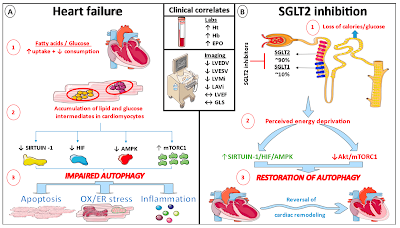Dysautonomia: The Undetectable Disease Influencing Millions Around the World
Dysautonomia, a neurological disease, influences an enormous number of individuals worldwide, yet it remains generally obscure and ineffectively comprehended.
This condition
emerges when the autonomic sensory system doesn't work as expected, prompting a
range of issues throughout the body. Side effects of dysautonomia can fluctuate
in power from one individual to another, making determination testing and
frequently bringing about long periods of vulnerability for people looking for
replies.
Expert Knowledge
from Dr. Joel Sanchez, Dysautonomia Master in Puerto Vallarta
Dysautonomia,
otherwise called autonomic brokenness, is a wide term that alludes to a
gathering of ailments that are brought about by the brokenness of the autonomic
sensory system (ANS). The autonomic sensory system is responsible for
controlling compulsory body capabilities, for example, pulse, circulatory
strain, assimilation, and temperature, and that's only the tip of the iceberg.
Nonetheless, when the ANS doesn't work as expected, it can prompt many side
effects and issues in numerous organ frameworks.
Here, we will
investigate this mind-boggling condition that influences more than 70 million
individuals around the world. Additionally, we'll find how Dr. Joel Sanchez, a
main dysautonomia master in Puerto Vallarta, has turned into a wellspring of
expectation for those confronting this clinical test.
Dysautonomia:
Side effects
Dysautonomia side
effects can include heart palpitations, weariness, shortness of breath,
gastrointestinal issues, and trouble controlling internal heat levels, and
that's just the beginning. In any case, because dysautonomia envelops a large
number of conditions with various causes, treatment choices can fluctuate. In
this way, the board might include prescriptions to control side effects, way of
life changes, exercise-based recuperation, and now and again, tending to the
hidden reason, assuming one is recognized.
On the off chance
that you suspect you have dysautonomia or are encountering side effects
connected with autonomic sensory system brokenness, it's critical to counsel a
medical professional proficient in legitimate determination and a therapy plan custom-fitted
to your particular condition.
Factors that
might contribute to the improvement of dysautonomia.
As a rule, the specific reason for dysautonomia is obscure. By and by, there are a few factors that have been connected to an expanded gamble in fostering this condition. For instance, a portion of the gamble variables and potential triggers include:
In any case, it's
vital to take note that dysautonomia can appear in different ways, and the
particular contributing elements can shift generally. Thus, determination and
the board ought to be performed by medical services experts like cardiologists
or interventional cardiologists. Luckily, these experts can assess a patient's
clinical history, direct proper tests, and prescribe a treatment plan
custom-made to one's particular condition. Treatment might include tending to
basic causes, overseeing side effects, and making way-of-life alterations to
work on by and large personal satisfaction.
Demonstrative tests and infection of the
executives
Dysautonomia is a
troublesome infection to analyze because of the range of side effects it might
introduce. Accordingly, the early and exact location is fundamental to giving
the executives backing. To accomplish this objective, Dr. Joel Sanchez utilizes
the accompanying particular tests and techniques to recognize this
mind-boggling infection:
Point-by-point
clinical history: Dr. Sanchez starts the symptomatic cycle by directing an
exhaustive meeting with his patients. This assists him with knowing the side
effects, clinical history, and chance variables of his patients.
Slant Test: This
test, performed at our CMQ Riviera Nayarit Medical Clinic, gauges the sensory
system's reaction to changes in pose. In this situation, our expert sees how
the patient's heart and pulse respond while moving from a level to an upward
position.
Observing
Circulatory Strain: Our cardiologist utilizes this method to enroll the pulse
over a drawn-out timeframe. Through this technique, he can distinguish unusual
changes that could be characteristic of dysautonomia.
Imaging Studies:
Now and again, our experts might demand imaging concentrates, for example, an
X-ray filter, to preclude other basic circumstances.
Slant Test at CMQ Riviera Nayarit Emergency
clinic
With regards to
diagnosing and tending to conditions, for example, dysautonomia, having the
right gear and expertise is fundamental. At Medical Clinic CMQ Riviera Nayarit,
our slant table test performs key symptomatic investigations for the
determination of sensory system problems.
The slant test
consists of assessing the reaction of the sensory system to postural changes.
During this test, the patient lies on their back on a unique table that is
steadily shifted at various points. While this happens, our group will screen
the patient's pulse and circulatory strain. This test lasts around 45 to an
hour and a half.
Advantages of the
Slant Test Review
The advantages of
the Slant Test are critical. For instance, one of the most conspicuous
advantages is that it gives a precise finding of conditions connected with
pulse and circulatory strain. Furthermore, when an autonomic problem has been
analyzed, the slant test provides important data for planning a customized
treatment plan. This might incorporate way-of-life adjustments, dietary
changes, medications, or other designated treatments to address side effects
and further develop the patient's satisfaction.
The Slant Test is only one of the numerous clinical assets accessible at Emergency Clinic CMQ Riviera Nayarit to aid in the finding and treatment of problems like dysautonomia. Our obligation to quality clinical consideration permits us to give our patients the most specific tests and administrations to serve their necessities. If you or a friend or family member has unexplained side effects connected with dysautonomia, we are here to help.



0 Comments